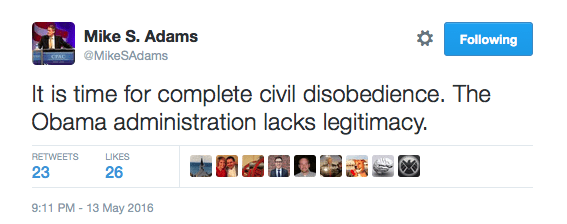RHODES TO RUIN: Postmodern politicking didn’t start with the Obama Administration, but it has reached its apotheosis with Ben Rhodes.
How much could someone who was in his early thirties when the Obama Administration began, and who is without any relevant education or life experience in foreign and national security policy, actually know about the subject? Anyone who doesn’t find just the question frightening, let alone all the likeliest answers, must be about as young and presumptuous as Rhodes.
Beyond the startling and the frightening there is also the outrageous, particularly in regard to the Iran deal. “Rhodes strategized and ran the successful Iran-deal messaging campaign,” Samuels writes. And the most appropriate way to think about what Rhodes was thinking as he did this is supplied via Samuels by former White House strategist David Axelrod: “I think they’ve approached these major foreign-policy challenges as campaign challenges, and they’ve run campaigns, and those campaigns have been very sophisticated.”
That’s exactly right: It’s the permanent campaign, as it has been called by many others. It’s a phenomenon that did not start with the Obama Administration—remember Karl Rove, for example. But it went into overdrive with the Obama Administration, where practically everyone in the White House, and in many Schedule C enclaves beyond, has behaved like a Karl Rove. And certainly this younger crowd’s facility with using social media for spin purposes wildly outpaced that of any of its predecessors. . . .
The American public, such as it is, was had. It was spun into dizzy disorientation. But was it therefore lied to?
That’s an interesting question. A normal person, which is to say someone not rendered overly “sophisticated” by the ethical derangement that comes from staying too long in Washington, DC, would say “yes.” But that has not been the audible response to Samuels’s revelations. Note the contrast here with summary but persisting conclusions about George W. Bush and his Administration. Certainly in chic circles in Europe, but also here in the United States, it has become part of the common book of left-wing devotionals that the Bush Administration knowingly, cynically, and very willfully lied about WMD in Iraq. This isn’t remotely true, but such is the derangement caused by rabid partisanship that the afflicted are not willing, most of the time, even to acknowledge any moral distinction between being inadvertently mistaken and knowingly lying. . . .Nevertheless, the fact of the matter is indisputable: As I have written several times over the past few years, the truth was always the reverse of what President Obama often declared: “Better no deal than a bad deal.” The President’s real view was better a bad deal than no deal, because no deal meant a likely need to use force in the context of two other Middle Eastern wars that were neither concluded nor going particularly well. Indeed, some at the NSC engaged on the issue were actually candid enough, or foolish enough, to tell some interlocutors that from the start. The rest of us had to infer it.
Maybe earlier presidential deceptions—Jefferson’s, Roosevelt’s, even LBJ’s, and there are plenty of others that could be cited—could retrospectively be justified by the circumstances. Maybe executive leadership subsumes the admissibility of manipulation, to a point. But a deception is still a deception, and why Obama (and Rhodes) should get a free pass here is a little hard to square with any definition of fairness or objectivity. But as Tom Stoppard put it years ago, the mainly liberal mainstream media in the United States is “a stalking horse masquerading as a sacred cow.” Further explanation isn’t really required.
Democratic operatives with bylines, taking marching orders from Democratic operatives without bylines.

